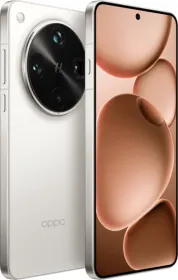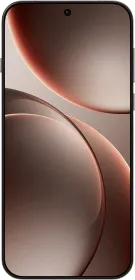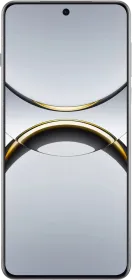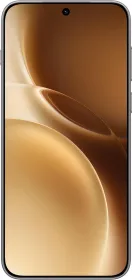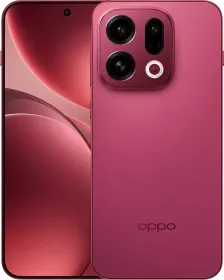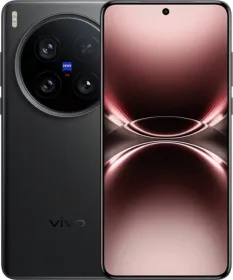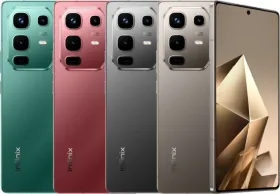You often hear the term “perfect smartphone.” For the first time, I have actually experienced something that comes very close. The OPPO Find X8 Ultra feels like my dream phone. It delivers excellent software, and more importantly, one of the best, if not the best, camera systems available today.
On top of that, the design, the build quality, and the overall experience are simply outstanding. The OPPO Find X8 Ultra just nails almost everything. The only thing is that this model is currently limited to China. You cannot officially buy it in India, at least for now.
However, OPPO already sells the Find X8 Pro and the Find X8 in India, so there is always a possibility that the Ultra version might make its way here in the future. After using the OPPO Find X8 Ultra for over a month, here’s why I think this might be the best smartphone available right now.
OPPO Find X8 Ultra Price & Availability
The OPPO Find X8 Ultra is exclusive to China, with no official release in India or global markets as of June 2025. In China, it starts at CNY 6,499 (~₹77,000) for the base variant.
Importing is the only option for non-Chinese buyers. OPPO’s Find X8 and X8 Pro are sold in India, so there’s hope the Ultra might arrive, but for now, it’s a China-only smartphone.
Pros
- Great camera performance
- Amazing macro photography (3X tele-macro)
- Stunning portraits
- Slim ultra-camera phone at 8.78mm with balanced 226g weight
- Gorgeous 6.82” QHD+ flat AMOLED with thin bezels
- Great speakers
- Ultra-fast 3D ultrasonic fingerprint scanner
- IP68/IP69
- 6100mAh battery with 100W SUPERVOOC charging
- Snapdragon 8 Elite delivers top-tier performance
Cons
- China-only availability limits official support and accessibility
- AI zoom needs work
OPPO Find X8 Ultra Specifications
- Display: 6.82 inch AMOLED, QHD+ (3168 x 1440), 510 PPI, 1-120 Hz LTPO, 10-bit, 800 Nits (typical), 1600 Nits (HBM), 2160 Hz PWM dimming
- SoC: Qualcomm Snapdragon 8 Elite, 3nm, 8-core (2X 4.32GHz + 6X 3.53GHz), Adreno 830 GPU
- RAM: 16GB LPDDR5X-9600
- Storage: 256GB/512GB/1TB UFS 4.1
- Cameras:
- Main: 50MP Sony LYT-900, 1 inch, f/1.8, 23mm, OIS, AF, 4K30/60/120
- Ultra-Wide: 50MP Samsung JN5, 1/2.75 inch, f/2.0, 15mm, 120° FOV, AF, 4K30/60
- 3X Periscope: 50MP Sony LYT700, 1/1.56 inch, f/2.1, 70mm, OIS, 10cm macro, AF, 4K30/60/120
- 6X Periscope: 50MP Sony LYT600, 1/1.95 inch, f/3.1, 135mm, OIS, AF, 90cm MFD, 4K30/60
- True Chroma: 2MP True Chroma CMOS, f/2.5, 23mm
- Front: 32MP Sony LYT506, 1/2.74”, f/2.4, 21mm, AF, 4K30/60
- Audio: Stereo speakers, studio-level 4 mics, SBC, AAC, aptX-HD, LDAC, LHDC 5.0
- Battery: 6,100 mAh silicon-carbon, 100W SUPERVOOC, 50W AirVOOC wireless, 10W reverse wireless
- IP Rating: IP68/IP69
- Connectivity: 5G (SA/NSA), Wi-Fi 7, Bluetooth 5.4, NFC, IR remote, dual nano-SIM, USB-C 3.2 Gen 1, works with both Jio 5G & Airtel 5G
- Biometrics: 3D ultrasonic fingerprint scanner, 2D face unlock
- Weight and Thickness: 226g, 8.78mm
- Build: Matte glass back, metal frame
- Software: ColorOS 15 (China version) based on Android 15
- Additional Features: Shortcut Button, Quick Button, IR blaster
OPPO Find X8 Ultra Review: Design and Build

OPPO has done a great job with the design of the Find X8 Ultra. At 8.78mm, it’s one of the thinnest in its class, shaving 0.72mm off the Find X7 Ultra (9.5mm) and edging out the Xiaomi 15 Ultra (9.35-9.48mm). Weighing 226g with great weight distribution, it feels lighter than its specs suggest.

The flat metal sides, gently contoured edges, and matte glass back, make it one of the most Ultra comfortable flagships I’ve held. The matte finish does not attract fingerprint smudges. The camera island, though, does attract fingerprint smudges. The front looks just as good – the thin symmetrical bezels look nice.

The Cosmos Ring camera module is a design icon, with its symmetrical lens arrangement and a Hasselblad-inspired orange dot signaling its imaging prowess. What I like about this is that the main camera’s outline has been made similar to the 3X telephoto’s symmetry.

Despite housing five advanced cameras, the module doesn’t protrude excessively. It also blends tastefully with the back glass. Oh, and you can lay it flat on a table without having to worry about wobble.
The IP68/IP69 ratings ensure it can survive 1.5m water submersion, high-pressure jets, and even high-temperature splashes. I am not sure about the glass protection being used here.

The Shortcut Button, an evolved Alert Slider, is here, customizable for tasks like flashlight, recording, translation, or screenshots with a long press (yes, long press only). OPPO should allow more customization with this button, like a single press, double press, or the ability to launch specific apps.
The Quick Button, debuted on the Find X8 Pro, is a capacitive touch sensor and I use it to launch the camera with a double-press. Both buttons offer satisfying haptic feedback.

Ports are well-placed: USB-C 3.2 Gen 1, dual nano-SIM tray, and two mics at the bottom; two mics and IR blaster at the top. The power and volume buttons sit slightly high but are tactile, and the Shortcut button is on the left.
OPPO Find X8 Ultra Review: Display

The OPPO Find X8 Ultra features a 6.82-inch 1440p OLED display. The default resolution is set to 1080p for some reason. Its flat design eliminates accidental touches and edge color shifts, making it ideal for reviewing photos or videos. It’s also screen protector friendly as the display is flat.

The 510 PPI means the display is extremely sharp. The 10-bit color depth is nice and the 2160 Hz PWM dimming means it’s easy on the eyes, even during late-night scrolling. The 1-120Hz LTPO refresh rate works well, and the 1.4mm symmetrical bezels give it a stunning, near-borderless look.

Although not the brightest, the display is still super bright. The brightness reaches 800 Nits using the manual slider and 1600 Nits outdoors. I had no issues using the display in bright conditions. Color reproduction is spot-on, with the Natural color profile that comes out of the box.

The display supports HDR10, HDR10+, and Dolby Vision. My only wish is for an anti-reflective coating, like on the Galaxy S25 Ultra, to reduce glare in harsh lighting. Otherwise, this is one of the best displays on any 2025 flagship.
OPPO Find X8 Ultra Review: Speakers and Haptics

The Find X8 Ultra’s stereo speakers are one of the best I’ve heard on a smartphone. They’re loud, crisp, and deliver surprising bass for a phone, making movie binges or music sessions immersive without needing headphones. Though they lack some mid range depth.
Haptics on the OPPO Find X8 Ultra are the best on any smartphone. They’re well-tuned, enhancing interactions like typing, adjusting sliders, or using the Quick Button. The integration with ColorOS 15 is also done really well. Typing is a joy on this phone.
OPPO Find X8 Ultra Review: Software

ColorOS 15 (China version) on Android 15 is a polished, feature-packed OS, that feels smoother than global ColorOS. I used to think that ColorOS global and China were equally smooth but I was wrong. ColorOS China on the OPPO Find X8 Ultra is way smoother and you can tell.

ColorOS 15 is one of my favourite Android skins. The UI is elegant, buttery smooth, with refined animations and robust multitasking features like split-screen, floating windows, and the new “OPPO Canvas” mode (90:10 split) are intuitive.
Oh, and Google apps work on the Find X8 Ultra. You just have to go into to Settings, enable Google Play Services, and then install the Google Play Store from the App Market. I’ve had no issues using this software as my daily driver except the missing Circle to Search and Gemini.

ALSO READ: How to Get Google Play Store Working on Chinese ColorOS and OriginOS
Flux Themes bring beautiful lock screens and Always-On Display options, and the smart sidebar offers tools like screen translate, File Dock, quick access to apps and shortcuts, AI Summary, AI Speak, AI Reply and AI Writer (these are not supported in many of the global apps though).

AI Features
Speaking of which, AI features are a highlight on this phone. AI Eraser flawlessly removes objects from photos, with Smart Lasso detecting shapes accurately. There’s also 4K Clarity Enhancer, AI Unblur, and AI Reflection Eraser. A new feature is AI Recompose, which uses AI to help you recompose your shots.




AI Recording Summary transcribes and summarizes calls but it seems to only work in Chinese as of now. There’s also AI in the Notes app, which thankfully works in English too. You can generate and rewrite text using this tool.

The OPPO Find X8 Ultra also comes with Breeno Memory, similar to OnePlus’ Mind Space, which saves on-screen content in a unified place. Unfortunately, the summaries are in Chinese only. A Translate app (also there in the sidebar) helps translate on-screen content but I found it to be less intuitive to use.

There’s no Circle to Search or Google Gemini here. Instead, you have Breeno Assistant, which is powered by DeepSeek AI. Since this is an LLM, it does understand English and can respond in English too (though the default is Chinese). It can set reminders, timers, and even answer real-time queries.

The OPPO Find X8 Ultra also features the new AI VoiceScribe. You can record (there’s no announcement), translate, and summarize audio from any app, with recordings saved to Notes along with auto-generated summaries and To-Dos. Just access the app from the sidebar and start recording.

Auto Captions provide real-time subtitles during calls or videos, with live translation (like Chinese to English on YouTube or Instagram; very very useful). Unfortunately, even though English is one of the supported languages, I couldn’t get the summary feature to work. But the live captions worked flawlessly. One cool thing is that OPPO has its own Find My and Digital Wellbeing here.

However, the Chinese software has drawbacks. Untranslated Chinese text occasionally appears in some apps and menus, which can be jarring. As mentioned earlier, Circle to Search, Google Gemini, and WearOS don’t connect. And there’s a lot of pre-installed bloatware (uninstallable). Still, in my eyes, the OPPO Find X8 Ultra delivers an amazing software experience.
OPPO Find X8 Ultra Review: Biometrics

The 3D ultrasonic fingerprint scanner is a revelation, 35% faster and 33% more stable than optical scanners like the Find X8 Pro’s. It unlocks instantly, even with wet, sweaty, or greasy fingers, and its non-dazzling light is perfect for nighttime use. It’s positioned ergonomically on the screen, too.
OPPO Find X8 Ultra Review: Performance

The Qualcomm Snapdragon 8 Elite powers the Find X8 Ultra, paired with 16 GB LPDDR5X-9600 RAM (10.7 Gbps) and 1 TB UFS 4.1 storage. It’s a performance juggernaut, beating the Dimensity 9400 in the X8 Pro.
Synthetic Benchmarks
| Benchmark | OPPO Find X8 Ultra | OPPO Find X8 Pro |
| AnTuTu v10 | 2,745,526 | 2,691,623 |
| Geekbench 6 (CPU) | Single-Core: 3,015 Multi-Core: 9,189 | Single-Core: 2,746 Multi-Core: 8,389 |
| Geekbench 6 (GPU) | OpenCL: 24,849 Vulkan: 17,782 | OpenCL: 22,139 Vulkan: 25,368 |
| AnTuTu v10 Storage Test | Score: 179,266 (score low because device was tested at 50% capcity) | Score: 257,742 |
| Wild Life Extreme Stress Test | Best Loop: 6,409 Lowest Loop: 3,354 Stability: 52.3% | Best Loop: 6,354 Lowest Loop: 2,673 Stability: 42.1% |

Gaming
Real-world usage is flawless. Genshin Impact runs at 60 FPS with max settings, maintaining thermals below 38°C after long sessions. You can even use frame boost to enjoy the game at 90 FPS.
Wuthering Waves hits an average of 58.5 FPS at the highest settings, with a peak temperature of 40.5°C. BGMI lacks 90/120 FPS support (since this is a Chinese device), but 60 FPS runs stable, without any heating issues. Here are some stats:

Day-to-day Performance

The OPPO Find X8 Ultra does not disappoint when it comes to day-to-day performance either. Everything feels fast, smooth, and snappy. I have not experienced any lag in my usage period. The RAM management is also excellent.
OPPO Find X8 Ultra Review: Cameras

LUMO imaging and true chroma sensor are the two major reasons why the OPPO Find X8 Ultra’s camera system stands out. The true chroma sensor is a dedicated 2MP CMOS sensor that works behind the scenes to deliver extremely accurate colors and skin tones. It ensures that the color output is not just software-processed but hardware-level precise.
This makes portraits, landscapes, and especially skin tones look natural and consistent across different lighting conditions. LUMO imaging takes that a step further. It fine-tunes focusing, color tones, dynamic range, and HDR processing across the full range of focal lengths including 15mm, 23mm, 70mm, and 135mm.
Thanks to real-time HDR preview, you can see exactly how the image will turn out before even clicking the shutter. This system makes sure both wide-angle shots and close-ups maintain high sharpness, accurate exposure, and balanced contrast.
Main Camera
The main camera is a 1-inch LYT900 sensor sitting behind a 23mm f/1.8 lens. It captures stunning daylight photos with rich details and vibrant colors. The 35mm crop looks excellent, and using Master Mode makes it even better.
























You can fine-tune soft light, tonality, saturation, temperature, sharpness, and vignetting. RAW Max support lets you shoot unprocessed RAW files at 50 MP resolution, offering massive flexibility in post-processing. While Auto Mode tends to push brightness slightly higher, the EV slider helps.







JPEG Max mode is also available in Master mode, which shoors JPEGs at 50 MP resolution. In Auto mode, you can also shoot 25MP high-res images by changing settings. The sensor comes with OIS and HyperTone imaging that balances contrast very well. The filters are lovely, especially the Serenity one.
Ultra-wide Camera
The ultra-wide camera uses a 50 MP Samsung JN5 sensor paired with a 15mm f/2 lens. It performs very well in daylight with sharp details and accurate HDR. Autofocus enables macro shots, though they do not match the quality of the telemacro shots from the 3X lens. Low-light performance is decent but not perfect, with minor softness at the edges. Still, the ultra-wide results are very good overall.








3X Periscope Camera
The 3X periscope is one of the highlights of this phone. It uses a large LYT700 sensor, measuring 1/1.56 inches, with a bright f/2.1 aperture and 70mm focal length. The performance of the 3X periscope is outstanding, with great details, colors, and HDR.
Macro Mode
The 10cm minimum focusing distance allows for excellent macro shots, especially in macro mode where you can switch between Natural Blur and Full Clarity modes. Natural Blur gives excellent bokeh and natural depth of field, while Full Clarity uses focus stacking which can struggle if handheld.
The periscope uses a standard L-shaped design and delivers great low-light results thanks to its large aperture. It supports RAW Max and produces jaw-dropping portrait shots with accurate skin tones, perfect edge detection, and incredible compression.


Portrait Mode
The portrait mode on the OPPO Find X8 Ultra is simply the best I have used on any smartphone. You get multiple focal lengths to shoot portraits, including 1X, 2X, 3X, and 6X, and you can freely zoom in and out and adjust background blur manually. There are also three soft filters and all the Hasselblad filters available, plus the beauty mode.
However, I mostly shot without using the beauty mode to keep the portraits natural. The best part is the variety of focal lengths like 35mm, 47mm, 70mm, 85mm, and 135mm that give you complete creative control, whether you want tighter headshots or full body portraits.






The edge detection is outstanding. It has the best semantic segmentation I have seen, perfectly separating subjects from the background even with complex hair or accessories. Skin tones are highly accurate, faces retain natural texture without smoothing, and low-light portraits come out equally impressive with rich detail and minimal noise.
Thanks to the large sensors, bright apertures, and amazing semantic segmentation, you get some of the most pleasing blue and bokeh in the background. The bokeh balls mimic real Hasselblad cameras, which looks amazing.














I have already captured over 750 portraits on the OPPO Find X8 Ultra in my review period because once you start using it, you cannot stop. It’s the best smartphone for portrait photography, both in daylight and low light.
6X Periscope Camera
The 6X periscope uses the LYT600 sensor, measuring 1/1.95 inches with an f/3.1 aperture. Its W-shaped light path allows OPPO to fit such a large sensor and long focal length into the phone. This lens delivers excellent compression, detail, and depth of field.












Portraits at 6X come out beautifully, and RAW Max shots from this lens can look truly cinematic. You can zoom up to 120X digitally. Tapping the 6X toggle twice takes you to 13.4X (300mm) and further to 30X (668mm). While AI processing takes over at higher zoom levels beyond 30X, details hold up well.
HDR and highlight control are excellent, though low-light performance could be slightly better. The only drawback is its 90cm minimum focusing distance, which causes trouble in some instances and the phone automatically switches to a digital crop from the 3X.
Selfie Camera
The front camera uses a 32MP LYT506 sensor, measuring 1/2.74 inches with a 21mm f/2.4 lens and autofocus. It delivers excellent selfies with great HDR and group shots thanks to the wider field of view.
Skin tones are mostly accurate, though occasional inconsistencies exist since this is a China-only model and the lack of a True Chroma sensor on the front. Portrait mode is still good here with excellent edge detection. And of course, you can zoom in digitally from 0.8X to 2X, which is always a welcome feature.






XPan Mode
There are multiple special modes as well. The Hasselblad XPan mode shoots in a 65:24 cinematic aspect ratio with focal lengths of 0.6X, 1X, 3X, and 6X. You get two filters, black and white and classic Hasselblad one. The cinematic aspect ratio aside, image quality is also excellent.



Silhouette, Fireworks, and Stage Mode
Silhouette mode can help create dramatic backlit shots by reducing exposure. Fireworks mode captures bursts with vibrant colors and quick shutter speeds. Stage mode helps with shooting a concert, stage, or even nighttime shots for that matter.



Action Mode
The Action Mode on the OPPO Find X8 Ultra is designed for fast-moving subjects. When enabled, it uses faster shutter speeds to freeze motion, making it perfect for capturing sports, pets, or birds. Even in less-than-ideal lighting, it manages to keep subjects sharp while minimizing motion blur.


Quick Button
The Quick Button is a capacitive haptic button on the bottom right. With it, you can open the camera app, instantly start burst shooting, or even zoom in (horizontally). I personally find the screen more intuitive to use but I do use the Quick Button to open the camera app. The position of the Quick Button needs to be a bit higher up.

Video
Video recording on the OPPO Find X8 Ultra is equally impressive. You get stabilization, Dolby Vision, and 4K 120 FPS support. Both regular and Pro Video modes allow zooming from 0.6X to 30X, with stabilization toggles that let you use the full sensor if desired. It also supports 4K 60 FPS Dolby Vision across all lenses.
Features like focus peaking, histogram, variable frame rate control, LOG video, and 2 aspect ratios make it highly versatile. Low-light video is quite good though some minor improvements are possible.
The sound focus feature works very well, capturing clear audio even when zooming. Concert shots and zoomed videos hold up with excellent detail. Note that 4K 120 FPS LOG video is still in the works and we’re expecting it to drop best next month.
It’s an amazing camera system

OPPO has done a remarkable job with the Find X8 Ultra’s camera system. The combination of LUMO imaging, True Chroma Sensor, Master Mode, RAW Max support, powerful telephoto lenses, and multiple specialized modes make this one of the most complete and versatile smartphone camera systems available right now. The portraits, videos, and macros especially stand out as the best OPPO has ever done.
OPPO Find X8 Ultra Review: Battery Life and Charging

The 6,100 mAh silicon-carbon battery is a powerhouse. With typical use (Camera, Telegram, Instagram, X, YouTube), I get 8 to 12 hours of screen-on time. Light use (e.g., browsing, WhatsApp) stretches to 10 hours, while gaming (Genshin, BGMI) yields about 7 hours. Heavy outdoor use with 5G, GPS, and photography lasts 5-6 hours, still impressive for a flagship.
The 100W SUPERVOOC charger (included) hits 100% in about 35 minutes, with 60% in 15 minutes. The USB-A to USB-C cable is dated, but third-party 65W PD chargers work well too. Make sure to toggle Smart Rapid Charging though.
There’s also support for 50W AirVOOC wireless charging, which requires OPPO’s proprietary charger for full 50W speeds. And the 10W reverse wireless is handy for charging earbuds. Thermals stay normal during charging.
Review Verdict: The OPPO Find X8 Ultra is THE Perfect Ultra Phone
The OPPO Find X8 Ultra is, quite simply, the most complete smartphone I have used in 2025. It nails the hardware. It nails the software. And it absolutely crushes the camera game. Portraits, macros, telephoto shots, videos – this phone delivers excellence across every focal length.
The Snapdragon 8 Elite keeps everything blazing fast, while the 6,100 mAh silicon-carbon battery easily lasts a full day, even with heavy use. The display is gorgeous, the haptics are best-in-class, the speakers are superb, and the 3D ultrasonic fingerprint scanner is flawless. ColorOS 15 (China version) is also smoother than any ColorOS I’ve used before.
But yes, it’s still China-only for now. Google services can be enabled, but missing global features like Circle to Search, Gemini, WearOS support, and some untranslated Chinese text are compromises you have to live with if you import. It supports Android Auto by the way.
Even with those geographical limitations, this is my favorite phone of 2025. If OPPO brings it to India or global markets, this will easily be the phone to beat. Right now, though, it’s the perfect Ultra for those who want the best and if you’re willing to import.

Smartprix ⭐ Rating: 9/10
- Design and Build: 9/10
- Display: 9/10
- Speakers: 8.6/10
- Software: 8.8/10
- Haptics: 10/10
- Biometrics: 8.8/10
- Performance: 8.9/10
- Cameras: 9.5/10
- Battery Life & Charging: 9/10
First reviewed in June 2025.

























































































































